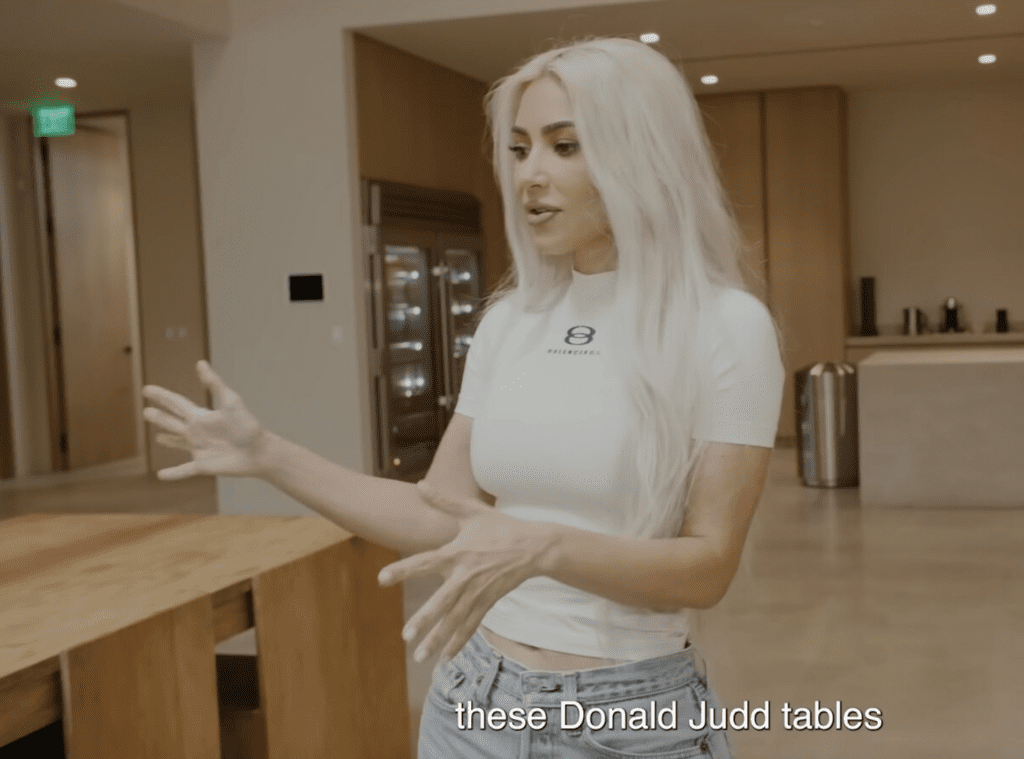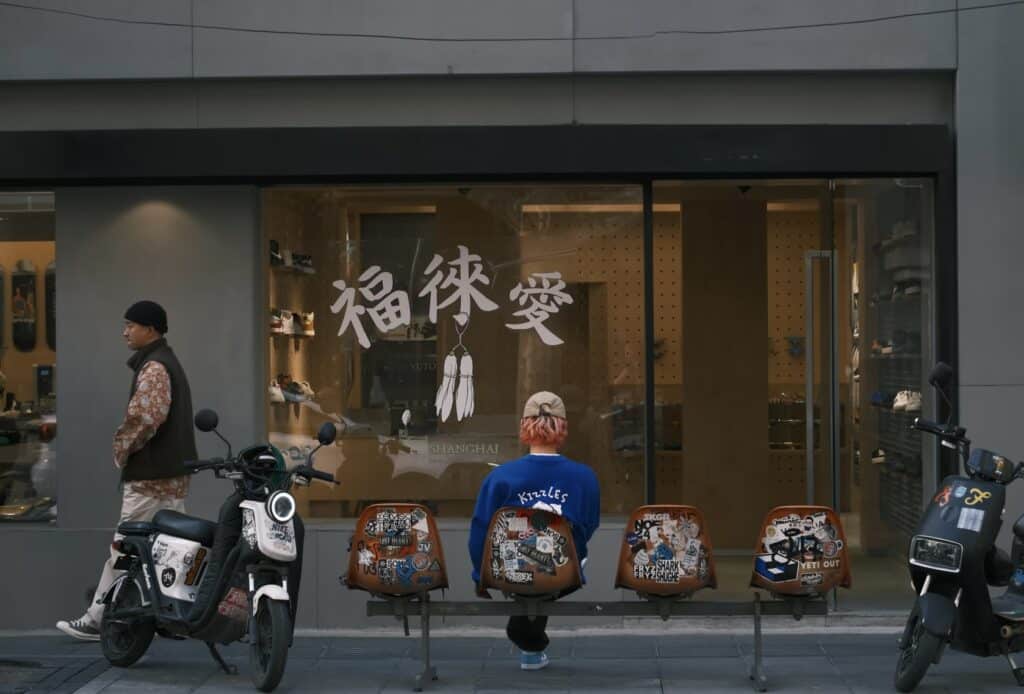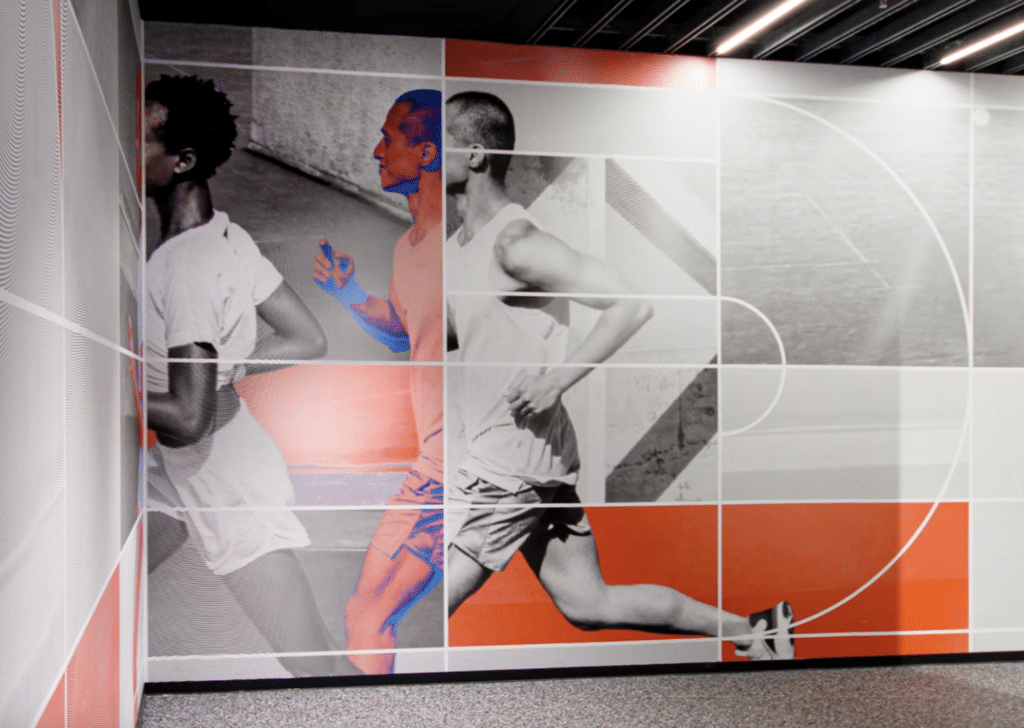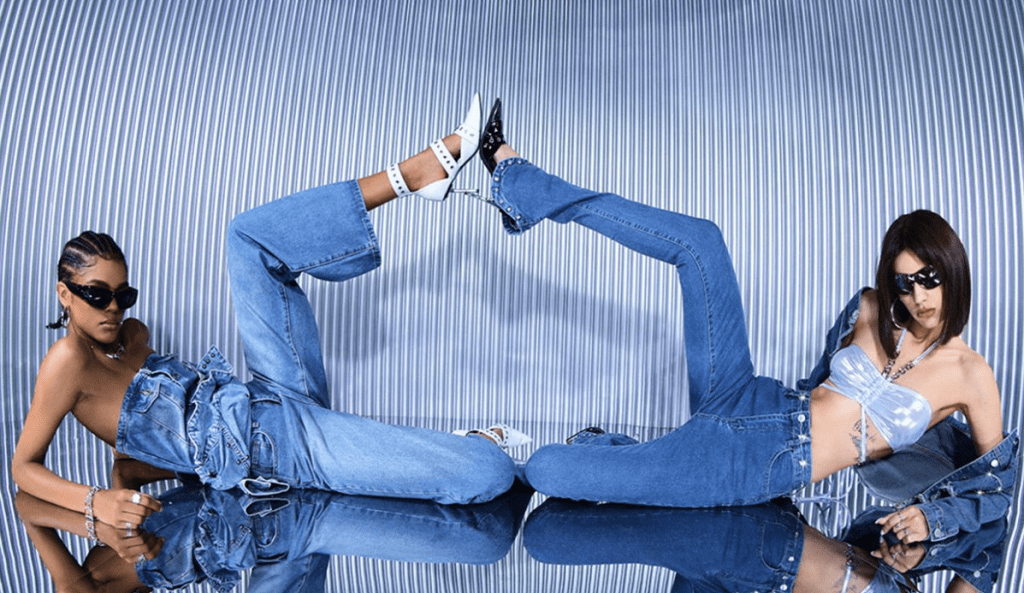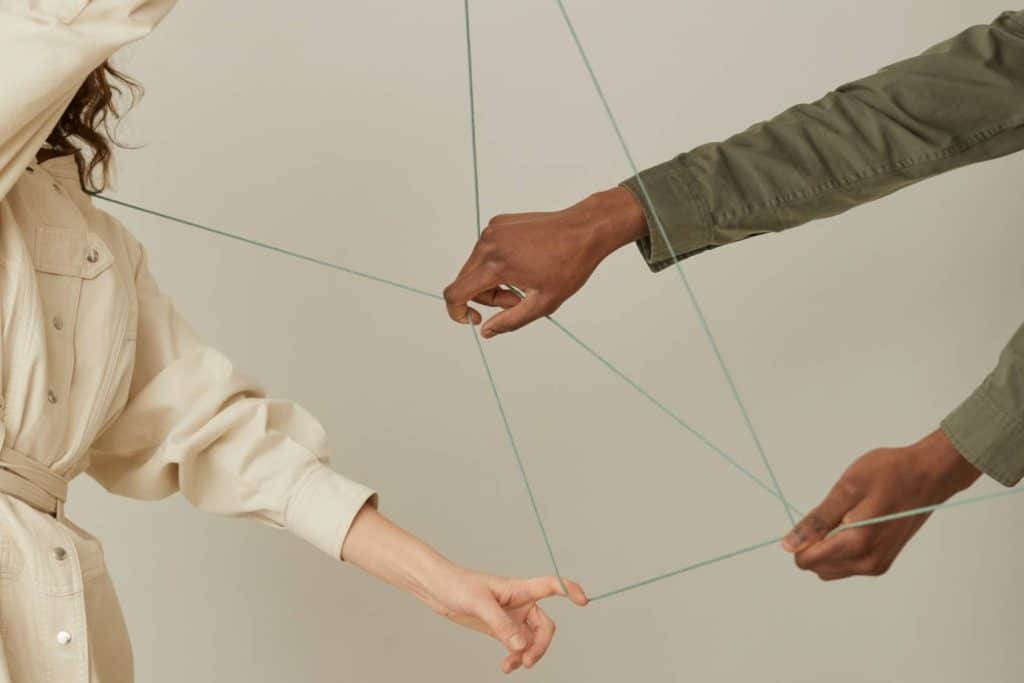The Judd Foundation is urging a California federal court to keep the entirety of its case against Kim Kardashian in play, despite the mega-star’s bid to have part of it dismissed. In a memo on July 25, the Judd Foundation – which sued Kardashian in March for allegedly passing off fake Donald Judd furniture as the real thing in a promo video for her SKKN BY KIM brand – asserted that Kardashian’s “false statement was heard by nearly four million people who were erroneously led to believe that Donald Judd and Judd Foundation endorsed, sponsored, or were otherwise affiliated with Kardashian and her brand,” thereby, harming Donald Judd’s “goodwill, reputation, and integrity.”
In response to Kardashian’s “attempt to adjudicate the merits of [its false endorsement] claim on a motion to dismiss,” counsel for the Judd Foundation asserts that it “more than adequately pleads [its] claim against Ms. Kardashian,” who “does not dispute that she made a false statement.” And in fact, she kept the infringing video – in which she toured her SKKN BY KIM office and told viewers that she had purchased “authentic” Donald Judd designs – available for consumers to see “despite knowing her statement [in the video] was false.”
In furtherance of its bid to keep the false endorsement claim intact, the Foundation makes three key arguments …
> Standing – While Kardashian previously argued that the Foundation lacks standing to wage its false endorsement claim (because it has not alleged an injury in fact), the Foundation argues that “reputational harms like those suffered by Mr. Judd and Judd Foundation are precisely those encompassed by the injury-in-fact standard.” Specifically, the Foundation claims that the harm to its reputation and goodwill is “concrete and particularized.” Such harm is heightened by the fact that it not only “prohibits purchasers from using its furniture in promotional materials to imply endorsement” but Kardashian’s “advertisement and the implied endorsement … undermines [its] ability to control Mr. Judd’s name and identity and the DONALD JUDD brand,” the Foundation asserts.
The Foundation contends that it continues to be harmed, as while Kardashian has argued that the furniture at issue is “located within a private office, out of the public eye,” she has continued to use the “knockoff” DONALD JUDD furniture in social media advertisements for her SKIMS brand, “even after Judd Foundation contacted her and she admitted the furniture was fake.”
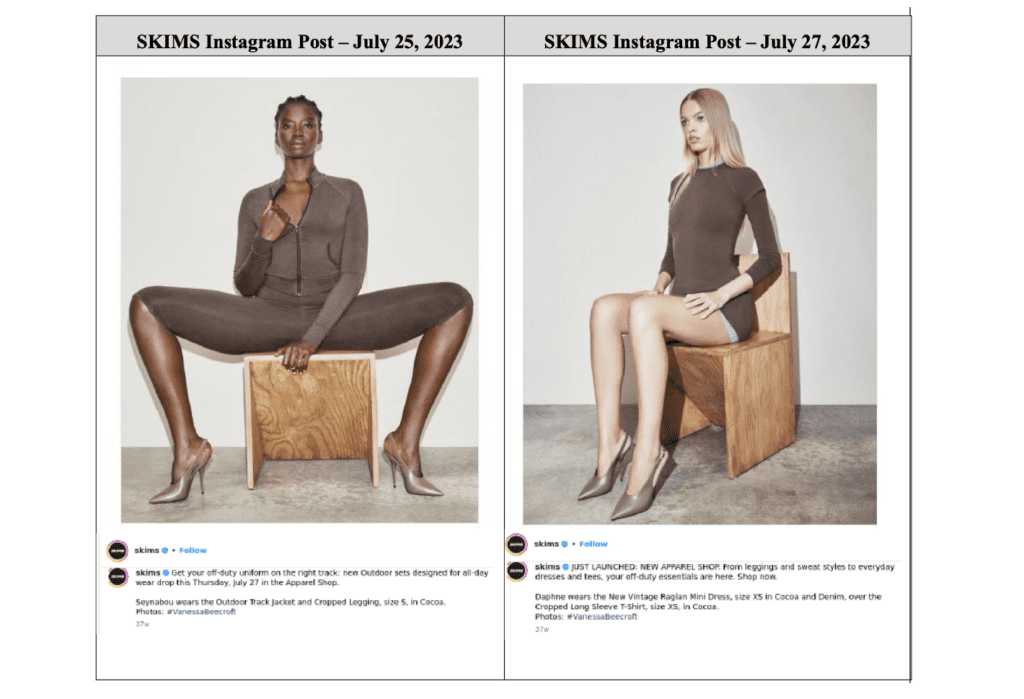
> Commercial Speech – “Ms. Kardashian is simply wrong that her self-titled ‘SKKN BY KIM Office Tour’ video, which extensively showcased and promoted her SKKN BY KIM products, is noncommercial speech shielded from liability under the Lanham Act,” the Foundation argues, noting that the complaint alleges that the SKKN BY KIM Office Tour Video is an advertisement because Kardashian was promoting her SKKN BY KIM skincare products in it.
While Kardashian argues that “her workplace and lifestyle are newsworthy matters of public interest,” and therefore, the First Amendment defense should apply, the Foundation claims that the First Amendment defense is inapplicable where a false statement is used to advance a “commercial theme or product.” That is the case here, according to the Foundation, as Kardashian “used Mr. Judd’s name, identity, and ‘world-renowned artistic reputation’ to advance the commercial theme of her SKKN BY KIM advertisement that touted the design and aesthetics of the SKKN BY KIM products, and increase the perceived value and exclusivity of the SKKN BY KIM brand by implying it was associated with Mr. Judd and his iconic status.”
Citing precedent from the U.S. Court of Appeals for the Ninth Circuit, the Foundation states that Kardashian “was engaged in patently commercial speech, [which] is not protected simply because Ms. Kardashian did not use a more traditional form of advertisement.” (Kardashian argued in her motion to dismiss that the video and the speech at issue does “not [come] in the traditional form of an advertisement,” and thus, she should be shielded from liability.) “Any holding that use of social media constitutes per se noncommercial speech would set a dangerous precedent,” the Foundation argues.
> False Endorsement Claim – Finally, the Foundation argues that it has sufficiently pled false endorsement and that Kardashian’s argument that it has not “ignores the complaint’s well-pled allegations, including that confusion is likely.” Judd Foundation has “clearly stated” a claim under the plain text of the statute, it argues, as the complaint alleges: (1) Ms. Kardashian, (2) in connection with her SKKN BY KIM goods, (3) in commerce, (4) falsely stated that she had authentic DONALD JUDD furniture, which (5) is likely to cause confusion connection, association, sponsorship, or approval by Mr. Judd and Judd Foundation of Ms. Kardashian and SKKN BY KIM goods.
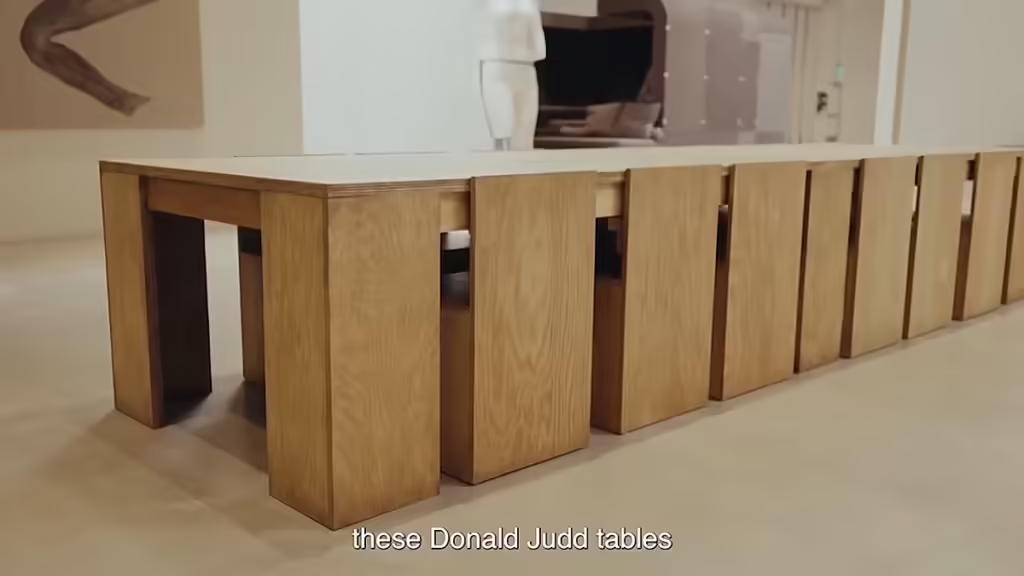
In addition to asserting that it has alleged a “textbook false endorsement claim under 15 U.S.C. § 1125(a),” the Foundation maintains that in her motion, Kardashian mischaracterizes the claim as a “reverse false endorsement” claim, “attempting to excuse her behavior because she is purportedly more famous than Mr. Judd.” On this front, Kardashian “essentially argues that because she is more famous than Mr. Judd, there is no plausible claim for false endorsement.”
The problem with that, per the Foundation, is that the comparative level of fame between a plaintiff and defendant is “legally irrelevant,” and Kardashian cites no authority that states otherwise. In reality, “Kardashian’s fame exacerbates the harm here, as her false statement was seen by millions of viewers,” and thus, the Foundation maintains that its false endorsement claim is “well pled and supported, and Ms. Kardashian’s motion should be denied.”
In addition to setting out a claim of false endorsement, the Judd Foundation is also suing Kardashian and furniture manufacturer Clements Design for trademark and copyright infringement, false advertising, and unfair competition.
The case is Judd Foundation v. Clements Design Inc., et al., 2:24-cv-02496 (C.D. Cal.).




